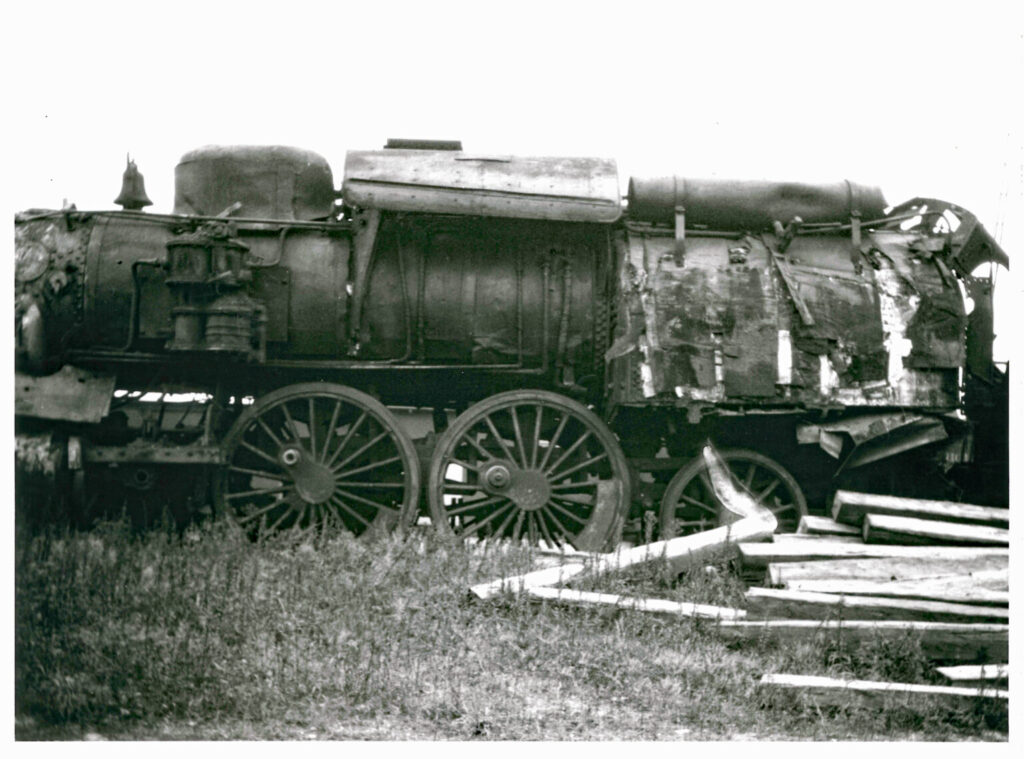Cutchogue native, nation’s acting U.S. archivist, plays key role in story of classified documents recovered from Trump residence

A Cutchogue native whose career has spanned more than three decades at the National Archive and Records Administration has become a key figure into the story of classified documents recovered by the FBI at former president Donald Trump’s Florida home.
The story that has dominated headlines in recent weeks after the FBI searched Mr. Trump’s home centers around more than 700 pages of classified documents that were kept in the private residence since the former president left the White House.
The government agency tasked with storing those documents, the National Archive, is currently led by acting U.S. archivist Debra Steidel Wall. Ms. Wall is a 1984 graduate of Mattituck-Cutchogue High School, who was featured by The Suffolk Times in a 2011 profile when she was named the deputy archivist, the agency’s No. 2 position.
The Washington Post published a story Saturday detailing how the normally inconspicuous agency had become the center of a political storm, and was hit with a wave of threats.
The Post wrote: “On Wednesday, the agency’s head sent an email to the staff. Though academic and suffuse with legal references, the message from acting archivist Debra Steidel Wall was simple: Stay above the fray and stick to the mission.”
Ms. Wall had written a letter dated May 10 to a Trump lawyer, Evan Corcoran, that was publicly released last week. In the letter, Ms. Wall wrote that the agency had “ongoing communications with the former President’s representatives throughout 2021 about what appeared to be missing Presidential records, which resulted in the transfer of 15 boxes of records to NARA in January 2022.”
The NARA found those boxes contained documents marked as classified national security information, “up to the level of Top Secret and including Sensitive Compartmented Information and Special Access Program materials.”
The NARA was seeking the return of additional documents.
She went on to write in the letter that “the executive branch here is seeking access to records belonging to, and in the custody of, the federal government itself, not only in order to investigate whether those records were handled in an unlawful manner, but also, as the National Security Division explained, to ‘conduct an assessment of the potential damage resulting from the apparent manner in which these materials were stored and transported and take any necessary remedial steps.’ “
Ms. Wall had previously worked directly under David Ferriero, the 10th archivist of the United States. In January, he announced he would retire effective mid-April. Ms. Wall become acting archivist in May, a role she will continue until the president nominates and the Senate confirms a successor.
The National Archive’s mission is “to provide public access to Federal Government records in our custody and control. Public access to government records strengthens democracy by allowing Americans to claim their rights of citizenship, hold their government accountable, and understand their history so they can participate more effectively in their government.”
Below is a story published by The Suffolk Times when Ms. Wall had just started as deputy archivist.
BY BETH YOUNG
Published July 12, 2011
Debra Steidel Wall was just a young teenager when during an eighth grade trip with her class at Mattituck Junior High School she first set eyes on Washington, D.C.
On June 3 she was named the deputy archivist of the National Archives, the No. 2 position in a federal department that has 3,500 employees, 44 locations throughout the United States and 10 billion paper documents.
“On that eighth grade field trip, that’s when I said ‘I want to live here. I want to come back here and be part of this,’” said Ms. Wall.
Wall last Thursday, at the end of her first week in her new position.
Ms. Wall graduated from Mattituck High School in 1984. She was raised on Little Neck Road in Cutchogue by her parents, Fran and Steve Steidel. Her father was a Suffolk County Police Officer and her mother was a teacher at the Ecumenical Nursery School at the Advent Lutheran Church in Mattituck. Her parents now live in Punta Gorda, Florida.
After leaving Mattituck, Ms. Wall studied history and government at Georgetown University, and then studied film in graduate school at American University, while working summers at the former Fishermen’s Rest restaurant in Cutchogue.
“When I first got here, I had no idea what the archives were. I was thinking of doing journalism or politics or something like that,” she said. “I thought I was interested in politics, but what I was really interested in was public service. I did my senior thesis on film history, and the archives has many films. Silent films were my specialty.”
Ms. Wall began her career at the National Archives in 1991 as an archivist in the motion picture, sound and video unit of the archives, and over the past 20 years has worked in nearly every aspect of the organization.
“I always managed to have opportunities. In almost any work you’re doing, you can find the part of it that makes change,” she said. “I went from trainee work into policy, information technology and data standards, then into more policy in the chief of staff role for the past four years. I’m 45. I’ve been here 20 years, but around here that’s kind of a newbie. We have a lot of people who are very dedicated to the mission and stay here for their entire career.”
But even in the relatively short time she’s been with the National Archives, the nature of access to information has changed dramatically.
“A lot of the stuff we have is unique. In the past, if you wanted something you’d have to send us a letter and ask what we have.
Now we have all of our descriptions on the internet, 72 million records have been archived and we’re open 24 hours a day,” she said. “We really need to change our culture. We’ve been a fairly traditional place. Up until a year and a half ago, we had policies that wouldn’t let us go to Facebook or Flickr on our work computers. Now we have a group of people who work for us who are using Flickr and Twitter as a way to engage people and get feedback from our users. We’re trying to stay at the forefront. In a very short time, we’ve become the leader in government.”
Ms. Wall said that most of the department’s new hires have an innate understanding about the way information has changed and, along with it, the methods that the National Archives’ customers use to access information.
“The agency’s biggest challenge is electronic records. We have material that’s on floppy disks or Betamax video,” she said. “Our requirement is to keep electronic records for the life of the republic, so we have to upgrade that.”
Ms. Wall now lives in Silver Spring, Md. with her husband, Michael Wall, and her seven-year-old daughter, Lily. She divides most of her time between the National Archives administrative office in College Park, Md. and the archives’ museum on the National Mall in Washington, D.C., and works long hours.
“We run the presidential library system throughout the country. We run the federal register, which publishes government documents. We run the government’s security classification program, which is a pretty big deal. We also make grants to state and local archives,” she said.
Ms. Wall serves directly under David S. Ferriero, the 10th archivist of the United States.
“Debra is passionate about the Archives’ mission and history,” he said in a press release announcing Ms. Wall’s appointment.
“She is forward-looking and open to change. …She understands the need for us to put stakeholders and customers at the center of what we do.”
And she’s also a kid from Cutchogue who, once upon a time, took a long class bus trip to Washington that changed her whole life.









